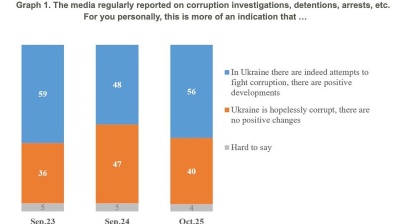Russia’s internet regulator Roskomnadzor has extended the deadline until May 15 for Twitter to delete content the government objects to or face a ban, the watchdog said on April 6.
The state information agency said that it would not block Twitter if it deletes posts relating to pornography and suicide instructions amongst other things. However, the government has also requested that Twitter close down some accounts belonging to opposition media, including the account run by an organisation funded by Kremlin critic Mikhail Khodorkovsky.
In the middle of March the information agency said it would block Twitter in 30 days if it did not remove the content and began to restrict the service’s bandwidth.
In response the company has removed 1,900 of the 3,100 offending posts. The speed at which Twitter is deleting the content is also accelerating. Roskomnadzor has already said that it is pleased with the progress made and now has extended the deadline to give Twitter more time to comply.
Roskomnadzor said that 650 new posts relating to suicide, child pornography and drugs have appeared on the site since mid-March, and Twitter has deleted 580. But there’s still room for improvement: on average, it takes Twitter 81 hours to delete such posts, whereas by Russian law, it should only take 24 hours, reports BMB Russia.
As the remainder of the prohibited content on Twitter is removed, the slowdown will continue. Twitter was also fined RUB8.9mn ($116,000) last week for not deleting posts that incited minors to participate in unsanctioned pro-Navalny protests in January – content ostensibly unrelated to its slowdown. TikTok has also been fined RUB2.6mn ($33,750) for the same offence. Roskomnadzor is thus still posturing to look tough toward foreign tech firms that do not comply with new laws to squash online dissent. But by giving Twitter more time to meet its demands, Roskomnadzor appears to have softened in its threat to ban Western social networks.
Separately Russian firms are looking to benefit from new measures to support domestic IT by spinning off their tech divisions to tap into tax cuts. VimpelCom, MTS, Russian Post, Sberbank and Rosatom have all done so.
By creating separate legal entities, the spun-off software outfits can become accredited by Russia’s digital ministry as IT firms. Those that receive 90% of their revenues from software sales enjoy large tax breaks: starting January 1, corporate income tax declined from 20% to 3%, and social security contributions dropped from 14% to 7.6%.
Tech

Iranian startup targets computer science skills gap with project-based learning model
Iranian startup CS12 introduces project-based computer science education for 13-15 year-olds to bridge university-job market gap and reduce brain drain, expanding from Tehran to Arak, Sari and Shiraz.

Uzbekistan’s unicorn ecommerce startup Uzum adds London to list of potential IPO locations
Co-founder says he's against a fast geographical expansion. Wants to win and dominate home market to demonstrate to partners fintech is capable of outperforming on other markets.

China increasing its lead in robot technology use
China is consolidating its dominance in the global industrial robotics market, accounting for 41% of the world’s operational robot stock and more than half of all new installations in 2024, according to the International Federation of Robots.
_(1).jpg)
OpenAI to invest up to $25bn in Argentina under Milei incentive scheme
Artificial intelligence giant OpenAI and energy company Sur Energy have signed a letter of intent to develop a data centre hub in Argentina requiring investment of up to $25bn.




